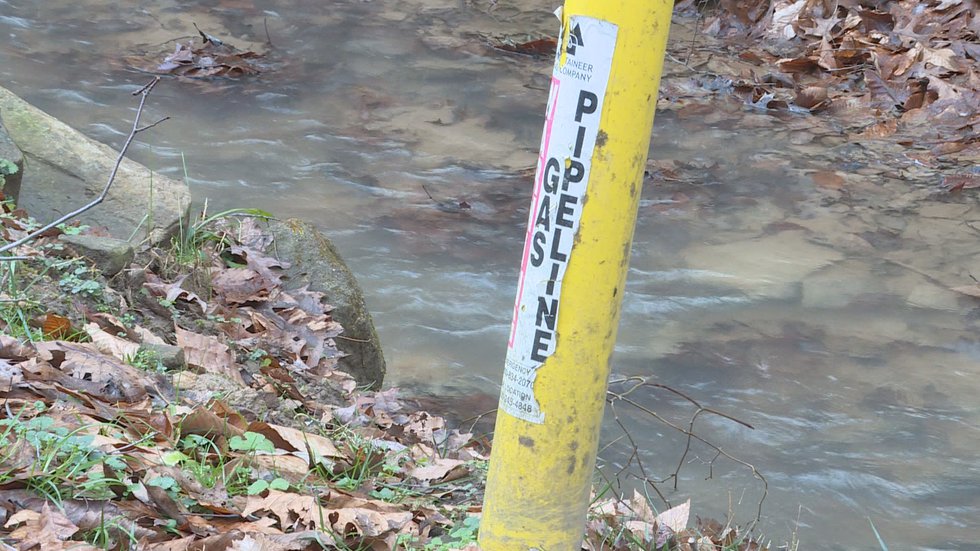[ad_1]
CHARLESTON, W.Va. (WSAZ) – An oil and gas rights group is fighting for change in West Virginia in wake of a new study showing leaks across the state.
This study from Princeton and McGill universities says after sampling 79 conventional vertical gas wells in 13 counties, more than half are leaking.
“We have always said that there’s too little enforcement from too few inspectors,” Dave McMahon with the West Virginia Surface Owners’ Rights Organization said. “And now we have scientific proof that this is the case.”
Part of their study says that 53% of a sample of conventional vertical wells are leaking an average of nine cubic feet of gas an hour.”
McMahon said this study shows more inspectors are needed because when they leak it’s not only wasteful but bad for the environment and smells bad.
McMahon and more got together Monday morning to show their support for two bills.
Their goal is for there to be one inspector for every 2,000 wells in West Virginia and for drillers to pay a $100 a year fee for each well.
“We would like to see more funding go towards having hiring inspectors to regulate these wells and tanks so that they can’t leak methane and other harmful substances into the environment,” Lucia Valentine, a lobbyist with the West Virginia Environmental Council said.
In December, WSAZ reported on two leaks in Kanawha County that were releasing highly toxic chemicals.
It’s those leaks that Valentine said they’re trying to prevent.
“We saw residents that are being negatively affected by the pollution, Valentine said. “We want to be actively preventing this from happening because again, some of these wells are leaking methane which contributes to the climate crisis.”
Valentine said for the roughly 60,000 active wells there’s one inspector for every 7,000 and for the nearly 30,000 active gas tanks there’s one inspector for every 3,000.
“In the 2020 budget, there was 4.7 million in this fund that funded 17 inspectors, one for only every 4000 wells. But the 2021 budget went down to 3.4 million,” McMahon said.
They would like to see both an amended SB 480 pass and HB 2725 pass, but Valentine said the current SB 480 seems most likely to pass.
That bill includes a $100 annual oversight fee for wells that produce 10,000 cubic feet of gas per day and increases the number of inspectors from nine to 20.
Copyright 2022 WSAZ. All rights reserved.
[ad_2]
Source link








